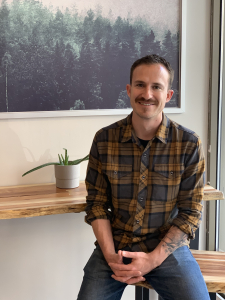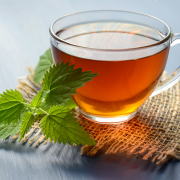What is the Difference Between a Naturopath (ND) and a Medical Herbalist (RHT)?
Do You Need a Naturopath or a Medical Herbalist?
By David Shaw
The holistic health world has always been with us to some extent or another. Speaking with seasoned herbalists and older patients, they both mention that the options for a more natural approach in health care have been there; although elusive. A compounding effect seems to have taken place over the past 15 years in the holistic world. More people are venturing away from conventional medicine with more education around preventative care like diet and lifestyle choices. This is where the newest profession of Naturopathic Doctor (ND) in the health field has been developed and the colleges of Holistic Medicine have sprung up in North America. Working with patients over the past 3 years I have come across very specific differences between ND’s and Medical Herbalists (RHT)/Holistic Nutritionist (HNC), not just in our approach and “prescriptions” but also training.
Comparing ND and RHT side by side:
Below is a table breaking down the training provided by two different colleges, one an ND curriculum and the other an RHT/HNC program. The table below has been condensed to their specific categories. More information explaining the naturopathic therapeutics is below the table.
ND Training RHT; HNC
Biomedical/Western Diagnosis: ND -3742hrs. RHT -525hrs
Nutrition: ND-144hrs. RHT -675hrs.
Herbal Medicine, Ayurveda/TCM: ND(**) RHT -1080hrs.
Clinical Practice: ND~1200 hrs. RHT~860 hrs.
Naturopathic Therapeutics: 588hrs.***
** N/A
***Naturopathic Therapeutics total of 588 hours includes Herbal medicine, Homeopathy, TCM, Hydrotherapy, ND Manipulative therapy, Ayurveda, Case analysis, ND Philosophy. (See references for resources)
The two biggest differences between the two health professions is the study in Biomedical studies and then Holistic therapeutics.
The course content for ND’s in the biomedical/Western Diagnosis is very extensive and detailed (list of courses are in the notes). This is the training that specifically qualifies them to practice within the conventional medicine world. On top of that training, they can also opt-in for additional training to be able to prescribe pharmaceuticals. The RHT/HNC are taught the fundamentals of Biomedical/western diagnosis introducing the student to anatomy, physiology, pathophysiology, all diagnostic tests and results, western pharmacology and more. A lot of the same topics are covered within the Biomedical sciences comparing the two programs- with the ND spending more time on each topic.
Medical herbalist training:
The time spent training a Medical Herbalist on Materia Medica – an in-depth study of each individual plant is extraordinary. This time is spent learning the properties of more than180 plants that would be in a dispensary including therapeutic applications, specific applications to conditions, contra-indications, dosage and the current scientific research. The therapeutic application is further explored in a separate curriculum learning how to apply plant medicine to a specific disease. In comparison to an ND, the time spent is not proportionate. The same can be said with the difference in time spent in studying nutrition and the therapeutic application.
The HNC studies holistic nutrition in-depth:
– Proper diet
– Therapeutic application
– Supplemental advice
– Diet analysis
– Meal planning
Clinic hours comparison:
The clinical practice acquired while in college is fairly similar. The ND college provides about 300 more hours. This time is spent gaining experience working with patients, learning constitution differences, applying integrative physical examination and ethical patient communication.
Regulating bodies and government oversight:
There is quite a difference between a Medical Herbalist and Naturopathic Doctor and both are viewed differently in the eyes of the government and overseen by different regulating bodies. Naturopathic Doctors must complete a board exam coming out of college to meet the standards of their regulating body, The College of Naturopathic Physicians of British Columbia. Similarly, to complete the Medical Herbalist programs some colleges will require a live observation of a new herbalist in front of a medical doctor and other herbalists.
Medical Herbalists also have a Regulating Body in British Columbia known as the Canadian Herbalist’s Association of British Columbia. This is where the designation of Registered Herbal Therapist or RHT is obtained. Standards are set and overseen by this organization so that a person who attends a two-week intensive course on herbal medicine is held to the same standard as a person who spent 3 years in training.
Another difference between the two regulating bodies is that one is recognized by the Canadian federal government and one is not. This is how ND’s are able to direct bill insurance for the patient who has extended coverage and the care provided by a Medical Herbalist is always out of pocket for the patient.
The right practitioner for your approach:
It is important to find a health care provider that appeals to your goals. For a lot of people, the conventional model using pharmaceuticals is the right approach. People are making a turn towards preventative care and alternative approaches to healing and that’s where the Naturopathic Doctor and Medical Herbalist come in. The ND and RHT are bringing both worlds together being able to bridge conventional medications and alternative therapies. The ND has a wide range of training in a lot of different fields with some deciding to specialize in one field or another. A Medical Herbalist is the specialist in applying herbal medicine to a diagnosed and/or suspected condition. A lot of times ND’s and RHT’s work together for the benefit of the patient and to provide comprehensive care. In the holistic health world, the bottom line is and should always be the patient, nothing more.
What to expect from a Herbal Medicine consultation?
Medical Herbalists are outside of the conventional bubble. When it is necessary, we like to work directly with other health care providers to have a comprehensive approach. We are able to use the tools and diagnosis provided from conventional medicine and apply specific and appropriate plants to facilitate healing. Our environment and the food we eat are so fundamental that a health picture wouldn’t be complete without looking in these areas for each individual person.
Inside an Herbal Medicine consultation, you can expect:
- 60 – 90-minute consultation
- Complete health background and health concern intake
- Diet review and adjustments as you feel necessary
- Diet analysis and meal planning to fit your goals (optional)
- A comprehensive exploration of each body system: everything from the cardiovascular, respiratory, nervous and digestive systems, et
- Complete review and understanding of all conventional diagnostic tools like lab work
- Supplement analysis and adjustment where you/we feel necessary.
- Specific herbal remedy(s) recommendations

David is a Medical Herbalist practicing on Vancouver Island. His holistic health path has led him to work with many different people operating a general practice at Apotheka Herbal Boutique with access to over 150 plants. He has a special interest and focuses his study working with families, including children, athletes and men’s health.
References:
Naturopathic Medical Education Comparative Curricula – National College of Naturopathic Medicine PDF – https://www.bcna.ca/documents/comparativecurriculacombined.pdf
Pacific Rim College 2019 – Website; Dual Diploma of Phytotherapy and Holistic Nutrition Course Overview and Curriculum
Naturopathic Medicine – Regulating Body Province of British Columbia – https://www2.gov.bc.ca/gov/content/health/practitioner-professional-resources/professional-regulation/naturopathic-medicine


